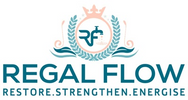
Can You Use Softened Water in a Central Heating System?
Can you use softened water in your central heating system? The short answer is yes, but you must check your boiler manual first. It is a bit like choosing a specific milk for your coffee; it works brilliantly unless your particular system is picky about the chemistry. We are breaking down the pros and cons of using softened water in your radiators to help you protect your home's most expensive appliance. This essential advice is part of our The Benefits of Soft Water: How a Water Softener Protects Your Home guide, but let's dive into the details of the heating loop right now.
Softened Water and Central Heating Systems: An Overview
Water may seem simple, but when it flows through your heating system, things can get surprisingly complex. In hard water areas of the UK, like London, Essex, or Kent, those extra minerals in your tap water are more than just a nuisance. They sneak into your pipes, your boiler, your radiators… and cause trouble. To combat the effects of hard water, many homeowners are turning to water softeners. But is that softened water actually good for your central heating system?
Let’s get into the nitty gritty.
The Problems Hard Water Can Cause in Heating Systems
Scale Build-up and Reduced Efficiency
You know that chalky residue on your kettle element? Imagine that, but inside your boiler. Hard water contains calcium and magnesium, which cause limescale when heated. Over time, this scale clings to the insides of your pipes and heat exchangers. It is like wrapping your radiator in a woolly jumper; cosy for it, but not great for heating your home. This mineral build-up reduces energy efficiency and forces your boiler to work overtime, racking up your bills.
Potential for Corrosion
Ironically, while hard water causes scale, it also creates ideal conditions for corrosion. The uneven build-up of minerals creates hot spots and pH imbalances. Add in mixed metals (common in modern systems), and you have got the perfect storm for rust and leaks. Left unchecked, corrosion can cause real headaches and real money.
Using Softened Water: The Pros and Cons
Potential Benefits
Reduced Scale and Improved Efficiency
Softened water removes those troublemaking minerals, calcium and magnesium by replacing them with a bit of sodium. It’s like giving your system a clean slate. Without scale, your boiler can run more smoothly. Heat transfers more efficiently, your system lasts longer, and you’ll likely notice lower energy costs. It’s a bit like descaling your coffee machine, once you do it, everything just runs better.
Potential Concerns
Salt Content and Certain System Materials
Here’s the catch: softened water contains trace amounts of sodium. While it’s not enough to bother most components, some manufacturers are cautious, especially with aluminium heat exchangers. Aluminium can be sensitive to the sodium ions in softened water. This is why some heating engineers may advise against using it in certain systems. It’s not that softened water is bad, it just isn’t ideal in every setup.
Expert Recommendations and Best Practices
Before you switch your system to softened water, take this golden rule to heart: read your boiler’s manual. Manufacturers often include guidance on whether softened water is approved. Some allow it, some don’t. Others may be fine with it if the hardness remains above a certain level (typically 100–150ppm).
Want to play it safe? Here are a few extra best practices:
-
Install a bypass valve so your kitchen cold tap and Countertop Dispensers or Reverse Osmosis systems still get untreated water
-
Test water hardness regularly, especially after installing a softener
-
Use corrosion inhibitors if required by your system
-
Always consult a Gas Safe engineer before making major changes
A quick phone call to a local heating expert could save you thousands in repairs down the line.
Conclusion: Weighing the Options for Your Heating System
So, can you use softened water in a central heating system? Yes, but only if your system supports it. Softened water can improve heating efficiency, reduce energy bills, and extend your system's life. But it also brings potential risks if used in systems with sensitive parts, like aluminium heat exchangers. Your next step? Check your boiler’s manual, talk to a professional, and make sure your water softening setup fits your home’s needs. When done right, softened water can be a brilliant addition to your central heating setup, keeping your home warmer, your system cleaner, and your wallet a bit happier.
More Water Softener info our customers have found helpful
- What is a Water Softener System
- How a Water Softener Works
- The Science Behind Water Softener Ion Exchange
- The Difference Between a Water Softener or Whole House Filtration
- Water Softener vs Reverse Osmosis: How to Choose the Right System
- Water Softener vs Water Conditioner: Pros, Cons, and Which One You Need
- Electric vs Non-Electric Water Softeners
- Water Softener vs Water Filter
- Common Myths About Water Softeners Debunked: The Truth You Need to Know
- Are Magnetic Water Softeners any Good?
- Can Water Be Too Soft from a Water Softener?
- Can You Use an RO System with a Water Softener?
- Can I Use a Water Softener with a Combi Boiler?


Leave a comment